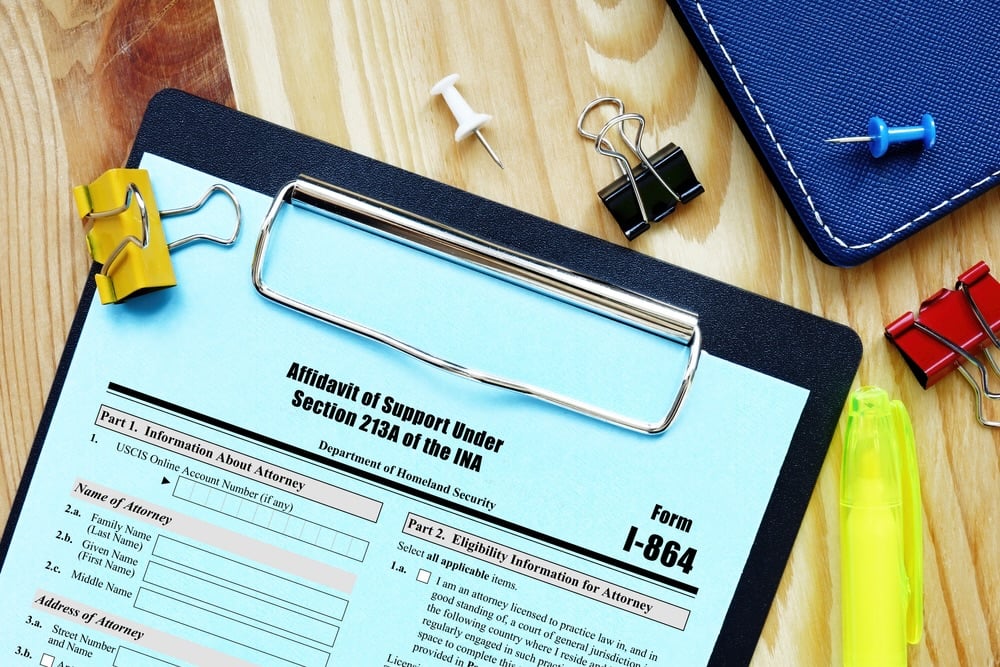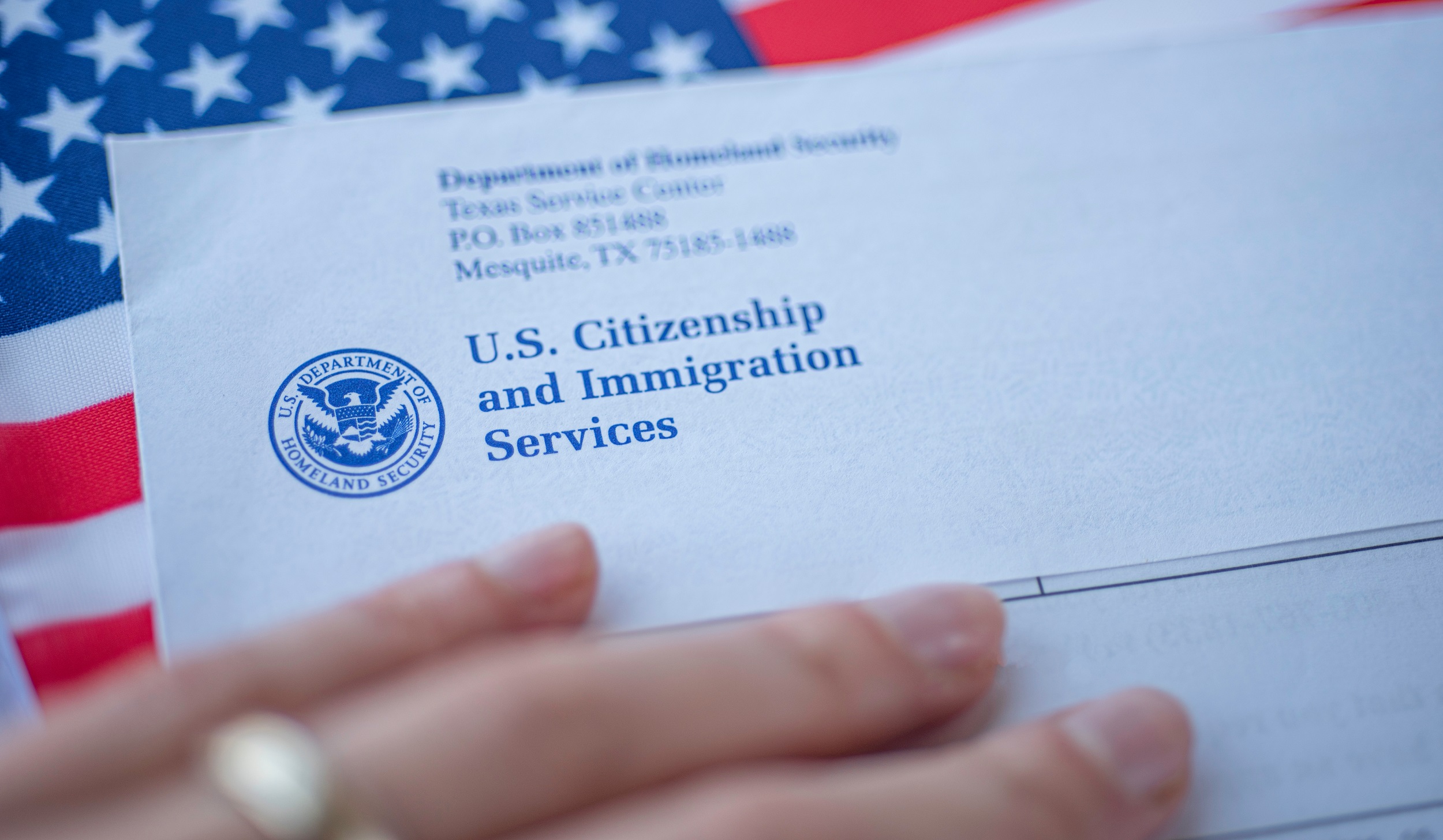Country of Domicile: What It Means for US Immigration

Understanding the concept of “country of domicile” is crucial for navigating U.S. immigration. Essentially, your country of domicile is the place where you consider your permanent home or primary residence, and it carries significant weight in various immigration matters.
It’s not just about where you are currently living but where you maintain substantial ties—such as owning property, having a job, or having long-term plans to stay. This distinction becomes especially important when applying for visas, green cards, or sponsoring family members, as it impacts your eligibility and the processing of your applications.
In this blog post, we’ll explore how the concept of country of domicile affects U.S. immigration, the difference between domicile and residency, and what you need to know if your country of domicile changes.
Country of Domicile Meaning

The term “country of domicile” refers to the country where a person has their permanent home or primary residence. In the context of U.S. immigration, it means the country where you live, work, pay taxes, and intend to remain for the foreseeable future.
Your country of domicile isn’t just where you currently live – it’s where you have significant ties, like property, a job, or close family connections. It’s important because your country of domicile can impact your eligibility for certain immigration benefits and processes.
Country of Domicile vs Residency

When navigating U.S. immigration, it’s important to understand the difference between “country of domicile” and “residency”. Although they might seem similar, they represent different aspects of where you live and your intentions regarding your living arrangements, especially when sponsoring family members for visas or green cards.
The country of domicile refers to your permanent home where you intend to live long-term.
It’s not just about where you currently live but where you have deeper, more permanent ties, such as property, family connections, or long-term plans to stay.
For example, a U.S. citizen working abroad but maintaining ties to the U.S., like owning a home or having plans to return, still has the U.S. as their country of domicile. In the context of U.S. immigration, having a U.S. domicile is crucial, especially for sponsors, because it demonstrates long-term commitment and connection to the U.S.
On the other hand, residency simply refers to the place where you are currently living, which can be temporary or short-term.
Residency can change frequently and doesn’t necessarily reflect where you plan to live permanently.
For instance, a U.S. citizen temporarily living in Canada for a work assignment is considered a resident of Canada, but their country of domicile remains the U.S. as long as they intend to return. Residency may affect where you file immigration paperwork or how certain processes are handled, but it doesn’t fulfill the same requirements as domicile in the immigration context.
In short, while residency describes your current location, country of domicile captures your long-term intent and deeper ties, which are essential in demonstrating your commitment to the U.S. for immigration purposes.
How does country of domicile affect US immigration?

Country of domicile affects U.S. immigration mainly in the sponsorship of family members for visas or green cards. U.S. immigration laws generally require sponsors to have a U.S. domicile, meaning they live in the U.S. or plan to return permanently. If a sponsor is living abroad, they need to show strong ties to the U.S., like property, a job, or intent to return.
Domicile is also important when filing Form I-864, Affidavit of Support, which proves you can financially support your relative in the U.S. Sponsors must show their income or assets meet U.S. standards, which can be challenging if they live overseas.
Country of Domicile on Form I-864

Form I-864 is required when a U.S. citizen or green card holder sponsors a family member for a green card. It serves as a legal promise that the sponsor will financially support the immigrant, ensuring they won’t rely on government assistance.
One of the key requirements for filing Form I-864 is that the sponsor must have the U.S. as their country of domicile, which means their permanent home is in the United States or they intend to return and live in the U.S. permanently.
If you’re a U.S. citizen or green card holder living abroad, you must show that you maintain significant ties to the U.S. or plan to return before your sponsored family member arrives. Without a U.S. domicile, the immigration authorities may reject the Form I-864, which can delay or even derail your family member’s green card process.
For sponsors living outside the U.S., proving the U.S. as your country of domicile might require additional steps. You may need to submit evidence like a job relocation letter, school enrollment for children, or documents showing your intent to return. This is especially important because, without a clear plan to reestablish a country of domicile, the U.S. government might question your ability to meet the sponsorship requirements.
Documents to Prove Your Country of Domicile
These documents collectively help establish that your permanent home is in the U.S., meeting the domicile requirement for immigration purposes.
U.S. Employment Offer or Contract: A job offer or employment contract from a U.S. employer shows your intent to return or stay in the U.S., especially if you’re currently working abroad.
U.S. Property Ownership or Lease: Documents like deeds, mortgage statements, or leases prove you have a home in the U.S. and intend to live there permanently.
U.S. Bank Accounts: Active U.S. bank accounts demonstrate ongoing financial ties and that you manage your finances in the U.S.
U.S. Tax Returns: Filing U.S. tax returns, even from abroad, shows your financial obligations to the U.S. and supports your domicile claim.
Voting Records: Voting in U.S. elections, especially from abroad, shows your engagement and intent to maintain U.S. domicile.
U.S. Driver’s License or State ID: Keeping a valid U.S. license or ID suggests your commitment to the U.S. as your permanent home.
Proof of Family Ties: Evidence of immediate family in the U.S., like birth certificates or your spouse’s employment, supports your U.S. domicile.
Relocation Plans: Documents like shipping receipts, school enrollment, or moving contracts highlight your intent to return to the U.S.
U.S. Mailing Address: A permanent mailing address in the U.S. helps prove your ongoing connection, even if you’re abroad.
Affidavit of Intent to Return: A signed, notarized statement outlining your plans to return to the U.S. can be helpful, especially if other documentation is limited.
Without proper proof for your country of domicile, your sponsorship application could be delayed, denied, or questioned. Need help? Our team of immigration lawyers at Manifest Law can help you gather the documents and build your case. Book a free consultation today.
What if I’m temporarily employed outside the U.S.?
If you’re working abroad, you might still be considered domiciled in the U.S. if you’re in one of the following situations:
- U.S. Government Jobs: Employment with the U.S. government, military, or its embassies.
- American Research Institutions: Work for a U.S.-based research institution recognized by the Secretary of Homeland Security.
- U.S. Firms: Employment with a U.S. company involved in foreign trade or its subsidiary.
- International Organizations: Jobs with international organizations the U.S. is part of, like the UN.
- Religious Organizations: Employment abroad with a U.S.-based religious group or as a missionary.
What if I’m living abroad temporarily?
If you’re temporarily living outside the U.S., you can still claim U.S. domicile if you:
- Have a Clear End Date: Show that your stay abroad is for a specific period, not indefinite.
- Intended to Maintain U.S. Ties: Prove you meant to keep your U.S. domicile when you left, such as maintaining a home or a U.S. driver’s license.
- Keep Strong U.S. Ties: Provide evidence like U.S. bank accounts, voting records, or ongoing tax filings.
How to re-establish your country of domicile as the U.S.

Re-establishing your country of domicile in the U.S. involves demonstrating that you’ve returned to or plan to return to the U.S. permanently and have significant ties to the country. Here’s are a few ways you can re-establish your U.S. country of domicile:
Return to the U.S.
Physically move back to the U.S. and set up your permanent home. Change your address to a U.S. residence, whether it’s your own property or a rental.
Secure Employment
Obtain employment with a U.S. company or organization, or have a job offer or contract from a U.S. employer that indicates your return to the U.S.
Maintain Financial Ties
Reopen or maintain active U.S. bank accounts. You can also continue or start filing U.S. tax returns to show financial commitment to the U.S.
Obtain a U.S. Driver’s License or State ID
Get a U.S. driver’s license or state identification card, if you don’t already have one.
Establish a Permanent Residence
Rent or purchase a home in the U.S. to show you have a stable living arrangement.
Enroll Children in School
If applicable, enroll your children in U.S. schools.
Change Mailing Address
Update your mailing address with relevant institutions to your U.S. address.
Affidavit of Intent
Write a statement or affidavit declaring your intention to remain in the U.S. permanently.
Frequently Asked Questions
Can I have multiple countries of domicile?
In general, you can only have one country of domicile at a time. Your country of domicile is where you have your principal residence or where you maintain significant ties, such as a permanent home or a substantial connection. Even if you travel frequently or live in different places temporarily, your primary residence or where you spend most of your time determines your country of domicile.
Does my country of domicile affect my eligibility for U.S. permanent residency (green card)?
Yes, your country of domicile can impact your eligibility for U.S. permanent residency, commonly known as a green card. The country where you are domiciled plays a role in determining your application process and waiting times. For instance, if you are applying through an employment-based visa or family-based petition, your domicile might influence the timing and processing of your application based on processing times in different locations.
What happens if I have a dual nationality? Which country of domicile is used?
If you hold dual nationality, the country of domicile used for U.S. immigration purposes is generally determined by where you primarily reside and have substantial ties. Your domicile is based on your principal residence rather than your citizenship. So, even if you hold passports from two countries, your country of domicile will be the one where you actually live and maintain your main connections.
What if my country of domicile changes after my visa has been issued?
If your country of domicile changes after your visa has been issued, it’s crucial to inform U.S. immigration authorities as soon as possible. A change in domicile can affect various aspects of your immigration status, including your visa validity or conditions. You’ll need to update your information to ensure that your visa and residency status remain accurate and in compliance with U.S. immigration regulations.



















